Table of Contents
- Understanding the Basics of Dental SEO
- How Dentistry Benefits from SEO
- SEO Strategies Tailored for Dental Website
- Target Keyword Specific to Dental Services
- Optimise Your On-Page Content
- Start a Dental Blog
- Building Domain Authority with Backlinks
- Leveraging Google Business Profile for Dentists
- Enhancing Patient Acquisition By Improving Your Reviews
- Utilising Analytics to Measure Dental SEO Success
- Should I Partner with an SEO Agency?
- Conclusion and Next Steps in Dental SEO Strategy
- Frequently Asked Questions
- What is Dental SEO, and why is it important for dental practices?
- How can dentists benefit from implementing SEO strategies?
- What are some key local SEO strategies tailored for dental practices?
- How can dentists measure the success of their dental SEO efforts?
- What are some effective techniques for building trust through backlinks and online directories?
Dental SEO: How to Rank High and Boost Organic Traffic to Your Dental Website
In the digital age, dental SEO is no longer just an option; it’s necessary for dental websites.
I have witnessed many dental websites that get many new leads due to SEO.
Here’s an example of the organic traffic growth of a dental website that I monitored for the past year:
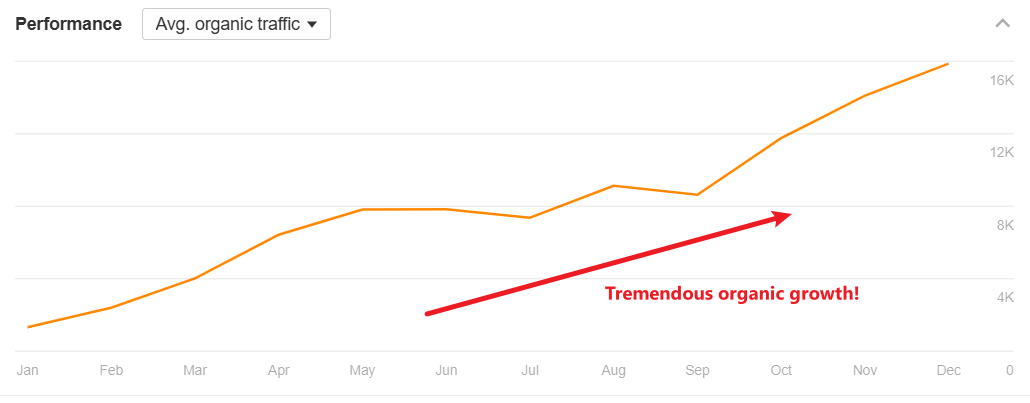
Curious how you can duplicate the strategies? 🤔
This article delves into the significance of dental SEO and how it can significantly benefit dental practices by enhancing their online presence.
By implementing effective dental SEO, practices can increase their visibility when potential patients search for services like dental implants, ultimately driving higher patient intent.
Understanding the Basics of Dental SEO
Before we dive deeper into the SEO strategies that make your dental website rank higher and get more traffic, let me briefly introduce the basics of dental SEO.

Technical Optimisation
Just like the foundation of a house, technical optimisation forms the backbone of your website’s performance.
Key aspects of technical SEO include:
- Improve Website Speed – Enhance the loading speed of your website pages to provide a seamless and efficient user experience.
- Ensure Website Mobile Responsiveness – Ensure a consistent and user-friendly experience across different screen sizes.
- Website Crawling and Indexing – Enable search engine crawlers to navigate and index your site’s content effectively.
On-Page Optimisation
Dental SEO involves on-page optimisation, directly improving the website to enhance its search engine visibility.
This includes creating SEO-friendly content with relevant keywords related to dental services.
For instance, a dentist’s website might include keywords like “teeth whitening,” “dental implants,” or “orthodontic treatments” to attract potential patients searching for these services.
Hence, keyword research is another fundamental aspect of dental SEO marketing. Dentists need to identify and target specific keywords that potential patients are likely to use when searching for dental services online.
For example, understanding popular search queries such as “best family dentist near me” or “affordable braces in [location]” helps dentists tailor their content around these key phrases.
Off-Page Optimisation (Link Building)
Backlink building plays a vital role in boosting a dentist’s website authority and credibility in the eyes of search engines.
For instance, getting featured in an article about oral health tips on a well-known medical platform provides valuable exposure and creates a quality backlink that signals trustworthiness and expertise to search engines.
Building relationships with other local businesses or collaborating with influencers within the healthcare sector can also result in valuable backlinks that significantly improve a dentist’s online presence.
When you optimise your site correctly, you will notice a huge improvement in your keyword rankings.
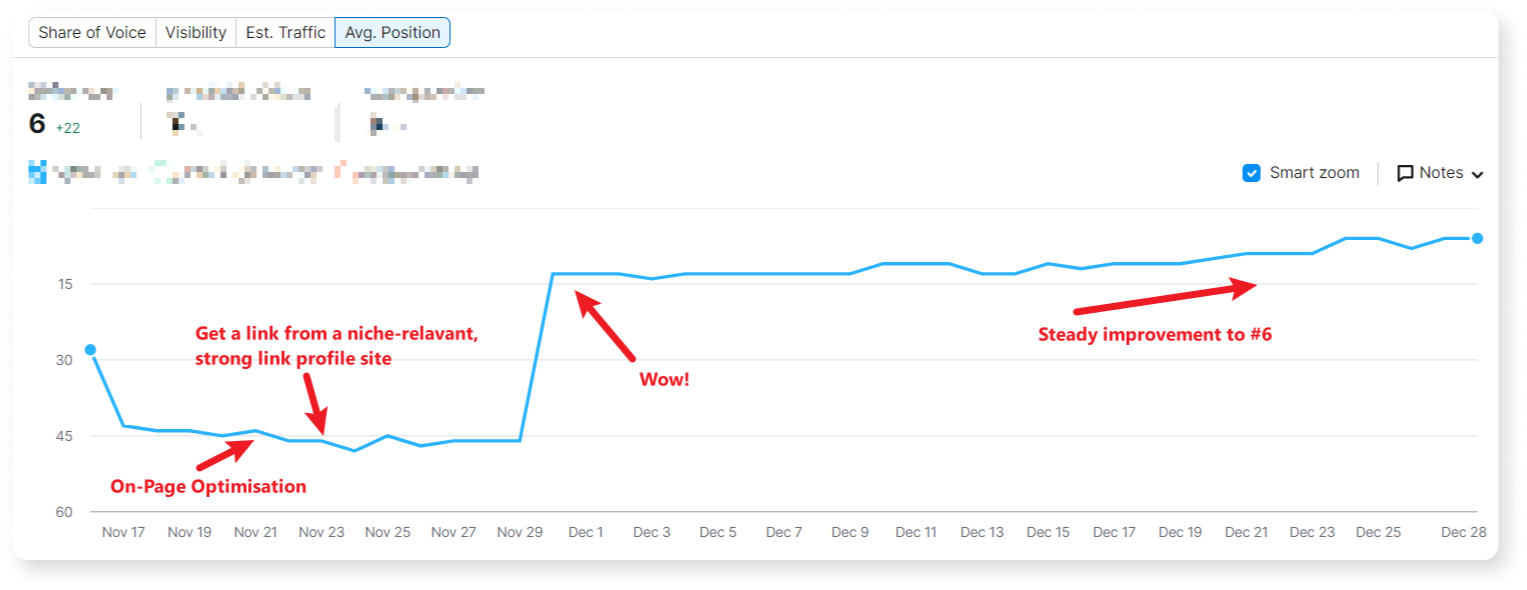
How Dentistry Benefits from SEO
In simple terms, SEO boosts your dental website’s visibility by ranking your website in the top position.
For instance, “braces price” has a 2,900 monthly search volume.
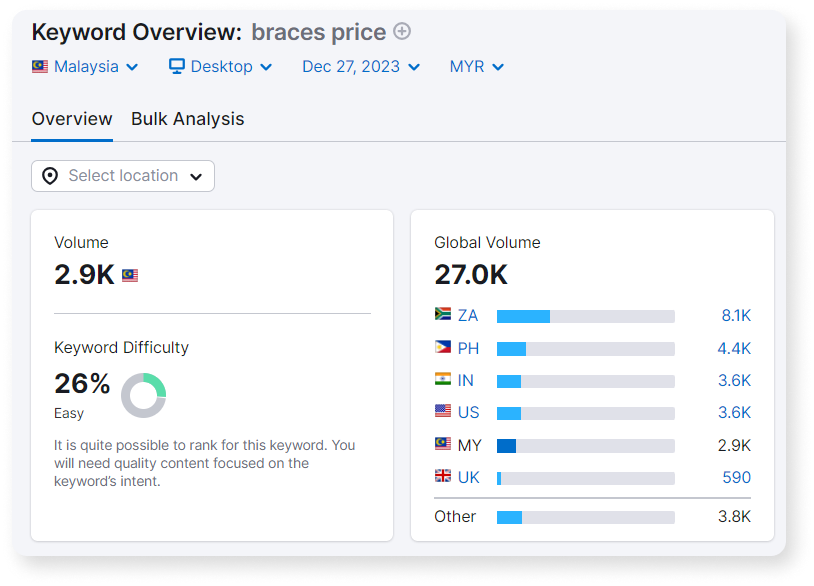
If your dental website ranks organically (not paying sponsored ads to Google), your page might get an estimated 750 monthly organic traffic. (research shows that 1st position receives a 25.9% click-through rate)
This increased visibility allows you to reach a wider audience, attracting more visitors to their websites.
Increased Patient Inquiries
One of the primary goals of implementing dental SEO is to drive more traffic to a practice’s website, ultimately leading to improved patient inquiries.
Hence, when your website ranks higher on search engine results pages (SERPs), it becomes more visible to individuals seeking dental care.
For instance, one of our clients ranked for some competitive local keywords like “braces penang” (around 200+ monthly search volume)
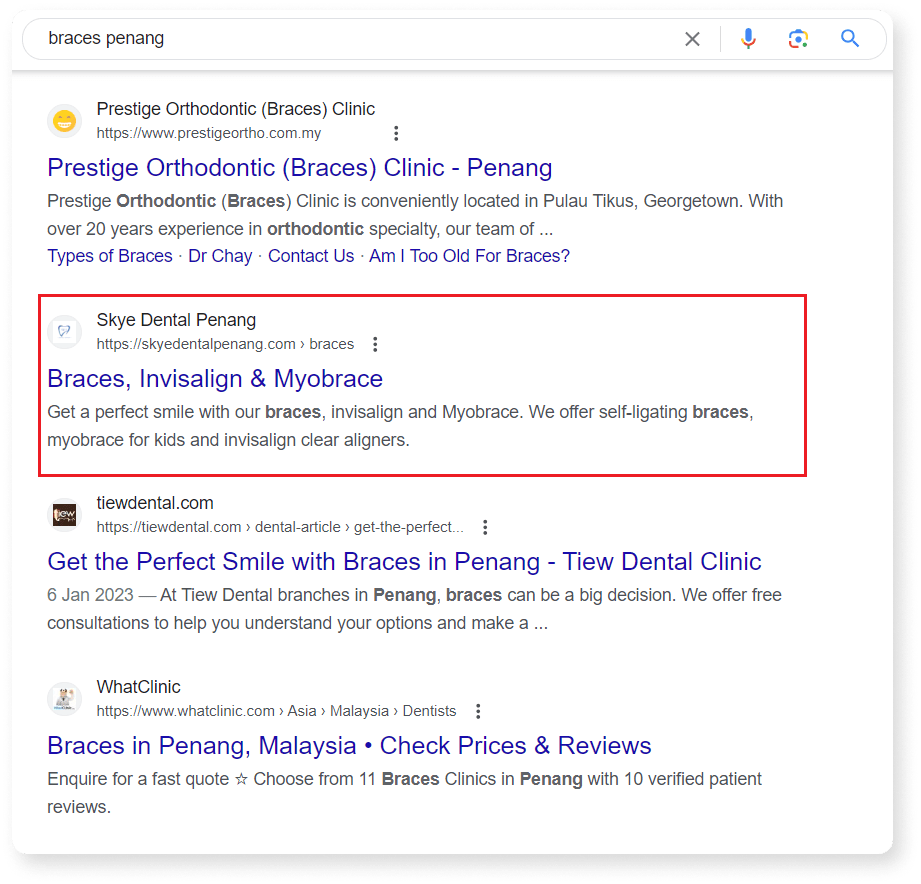
As a result, our client’s website is more likely to click through to the website and consider its services.
For example, if someone searches for “family dentist near me” and finds a local practice at the top of the search results due to effective SEO efforts, they are more inclined to visit that website than those listed further down.
Establishing Authority
If you consistently produce valuable content optimised for relevant keywords related to various aspects of dentistry—such as tooth whitening, Invisalign, or guide to dental implants —dentists can demonstrate expertise and build credibility among online audiences.
Moreover, when potential patients find helpful answers or solutions on a dentist’s website due to solid SEO practices, they are more likely to view that dentist as knowledgeable and reliable.
Over time, this contributes significantly towards building trust with existing patients and prospects seeking dental services.
SEO Strategies Tailored for Dental Website
Here are eight ways to build an SEO strategy to help you grow your dental website, regardless of your dental services.
Target Keyword Specific to Dental Services
Conducting keyword research is crucial for dental SEO.
Understanding the specific words or phrases that people use when looking for a dental clinic or a particular service, such as “root canal,” allows dental practices to tailor their website content accordingly.
This targeted approach increases the likelihood of appearing in search results when individuals seek information about these services.
Utilising local keywords is also essential for dental practices targeting specific service areas. For instance, including location-based terms like “braces in [city name]” or “[city name] dental services” can enhance visibility within a localised market.
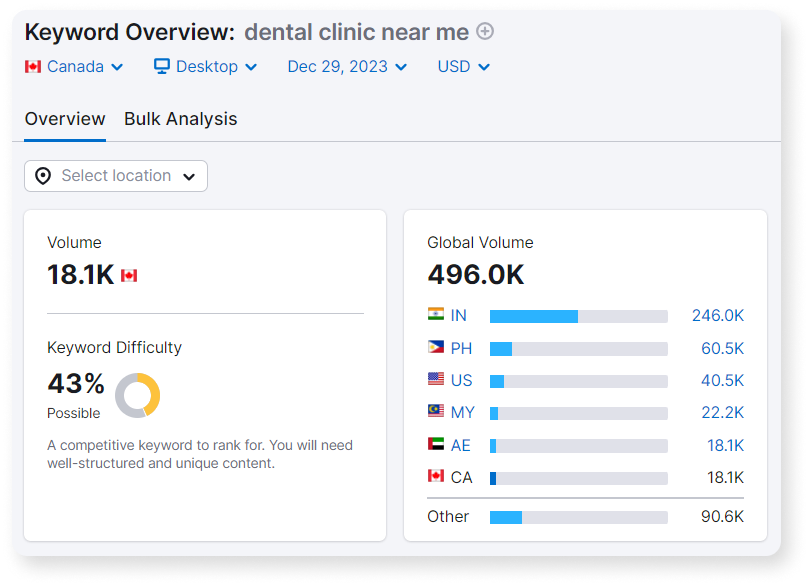
If a dentist identifies that “cosmetic dentistry” has a high search volume and competition in their area of operation through keyword research, they can optimise their website with this term.
As a result, when someone searches for “cosmetic dentistry near me,” there’s an improved chance that the dentist’s practice will appear prominently in the search results.
Optimise Your On-Page Content
Once you have researched suitable keywords to target, you should include them in your content appropriately.
Add Keywords to Title Tags and Meta Description
Optimising title tags and meta descriptions with targeted keywords related to dental services can significantly improve a website’s visibility in search results.
For instance, including phrases like “best teeth whitening services” or “affordable orthodontic treatments” in meta tags can enhance the site’s relevance for specific search queries.

Website Design and Structure
Ensuring your website has an intuitive navigation structure while optimising page load speed and mobile responsiveness is crucial for providing a seamless user experience.
A well-designed website with fast loading times not only improves user satisfaction but also contributes to better search engine rankings.
If you need help designing an impressive dental service website or want to refresh your site with a new look, VeecoTech is here for you!
Explore our web design services and offers to discover more today!
URL Structure
Crafting clean and descriptive URLs for different service pages helps users and search engines understand the content of each page more effectively.
For example, structured URLs like “www.dentalsite.com/teeth-whitening” provide clear information about the page’s topic while contributing to improved SEO performance.
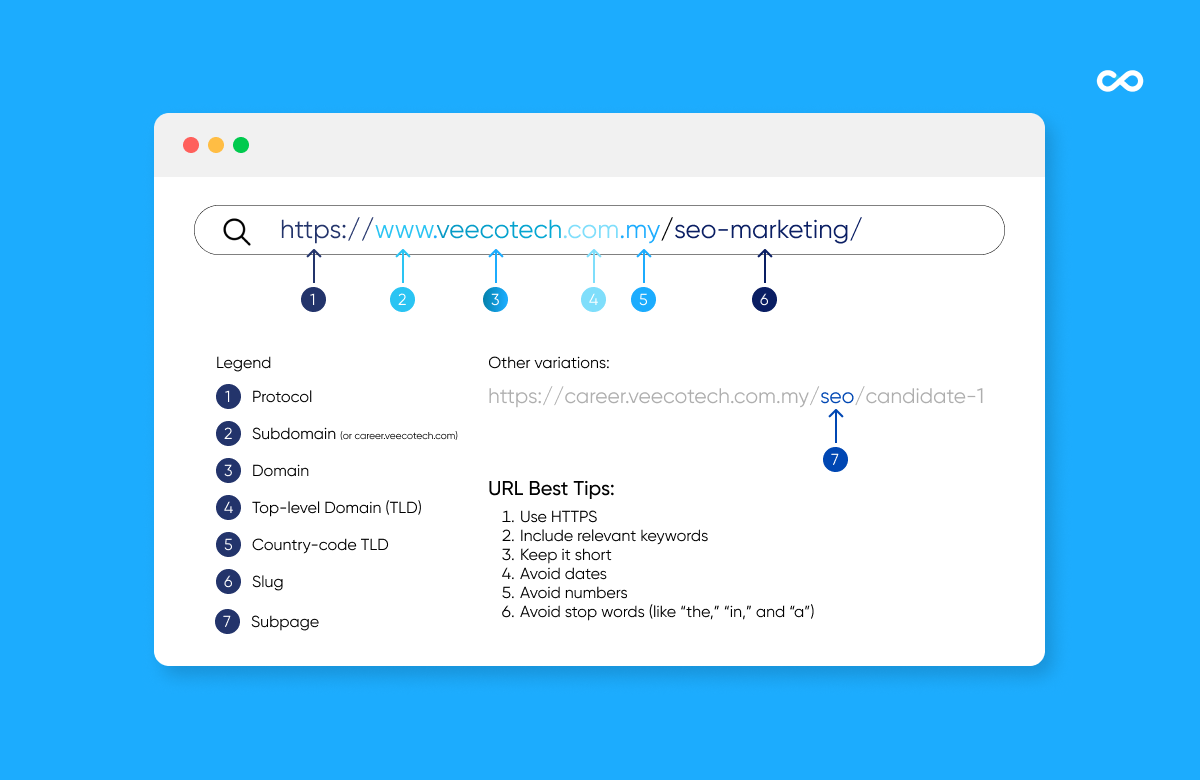
Optimising On-Page factors involves considering many aspects. We’ve created a comprehensive SEO checklist to guide you through the process. Take a look!
Start a Dental Blog
As Google favours sites with higher topical authority, creating relevant blogs related to dental topics will help you rank higher on Google and get more traffic.
Based on our SEO experience and helping clients in blog management, we have witnessed tremendous growth and benefits of well-structured content writing. Here’s an example from our client.
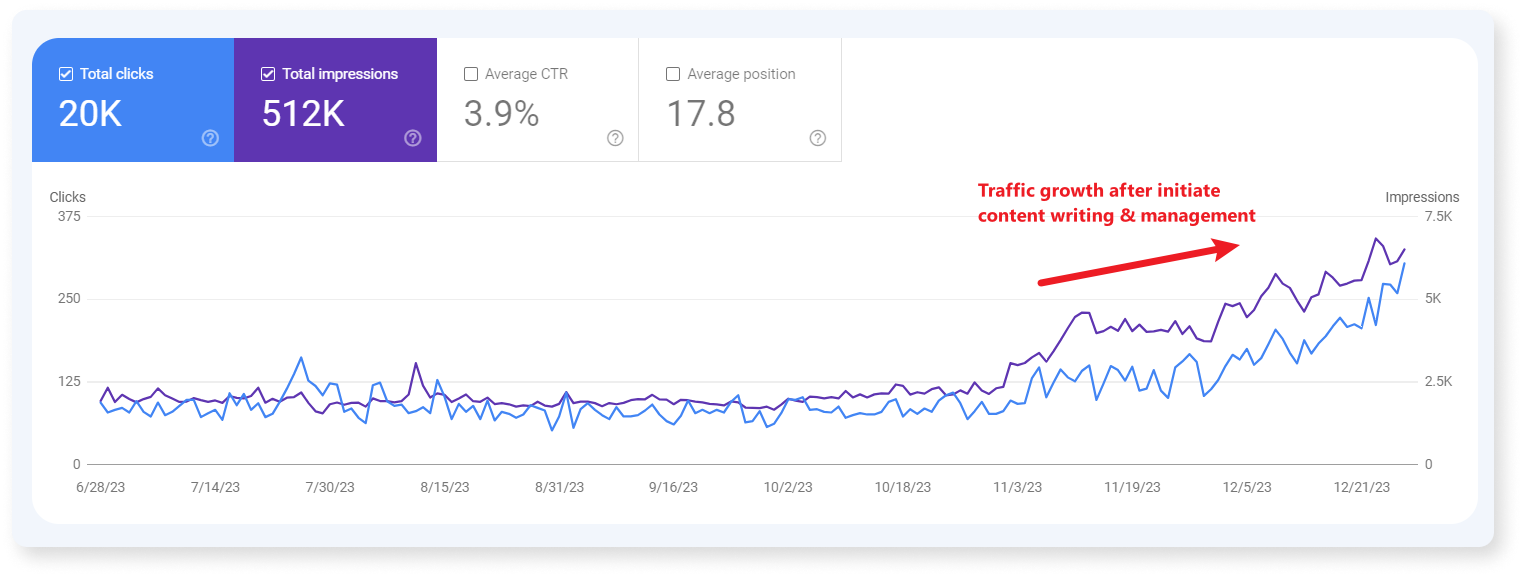
But one question remains: What type of blog should I create?
Here are the 3 simple steps you can use to find the topics.
First, find your top 3 competitors that have high organic traffic. You can use Ubersuggest to find the top pages by traffic.
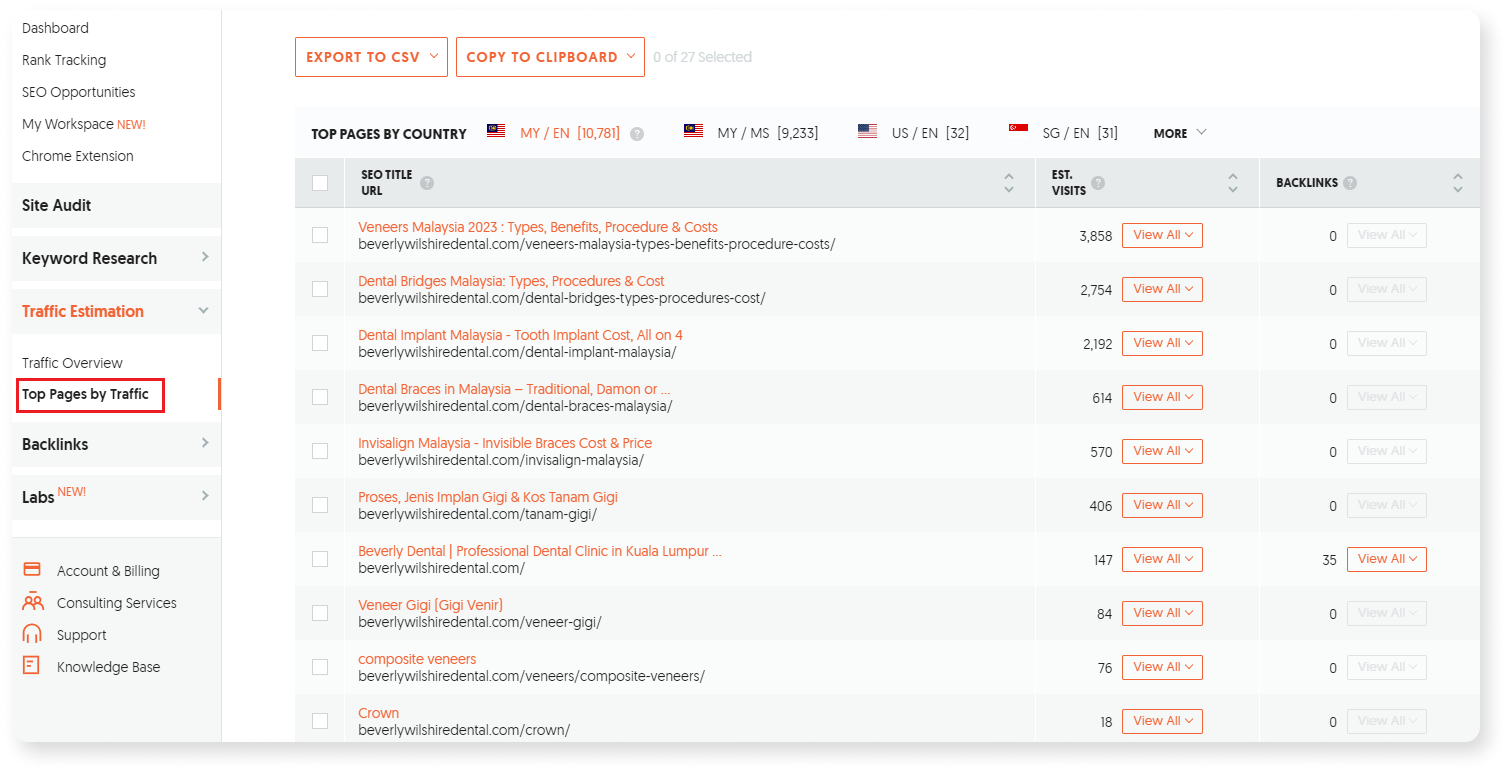
Then, go through the top pages and identify the top-ranking articles. Finally, start to write content for those topics.
Another way to go further is to explore opportunities in different languages.
If your dental clinic serves patients from different backgrounds and languages, creating blogs using another language can help increase your traffic as the competition is lower than in English.
For instance, the Malay language has many searches in Malaysia. A keyword like “karang gigi” has a monthly search volume of 4.4K.
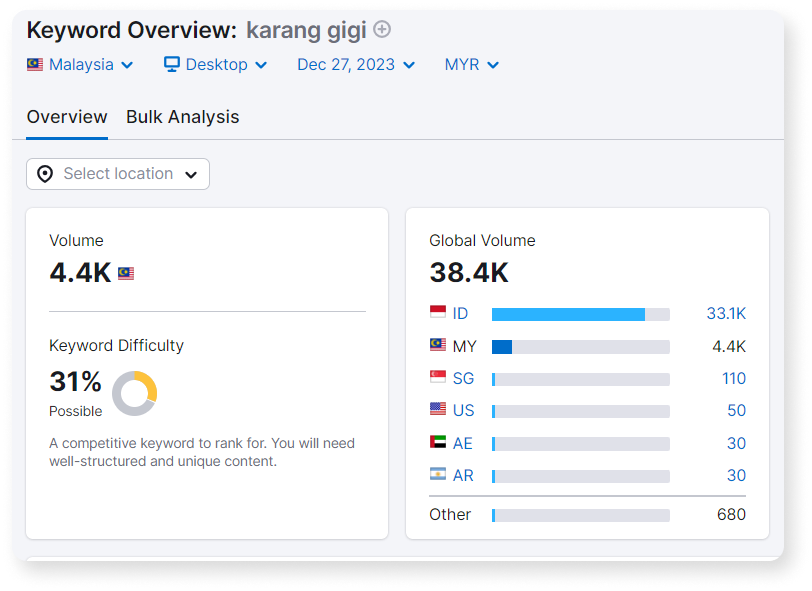
If you find yourself juggling various aspects of your business and don’t have the time to concentrate on marketing, simply reach out to us 😀
Our dedicated marketing team is ready to create a strategy and compelling content to generate more leads for your website.
Building Domain Authority with Backlinks
Backlinks from reputable websites are crucial for dental SEO, as they signal trustworthiness to search engines.
For instance, if a well-known dental association or publication includes a link to a dentist’s website in one of their articles, it tells search engines that the site is credible and trustworthy.
This increases the chances of appearing higher in search engine results and drives more organic traffic to your dental website.
For example, when other authoritative sites link back to a dentist’s homepage or blog posts, it enhances the credibility and relevance of the content in the eyes of both users and search engines.
Strategies for Building Backlinks
Dentists can employ various strategies for link-building. One effective method is through guest posting on relevant industry blogs or websites.
Another approach involves participating actively in forums related to dentistry or oral health. Engaging with these communities and sharing insights can lead to opportunities for other members or moderators to link to the dentist’s website when discussing related topics.
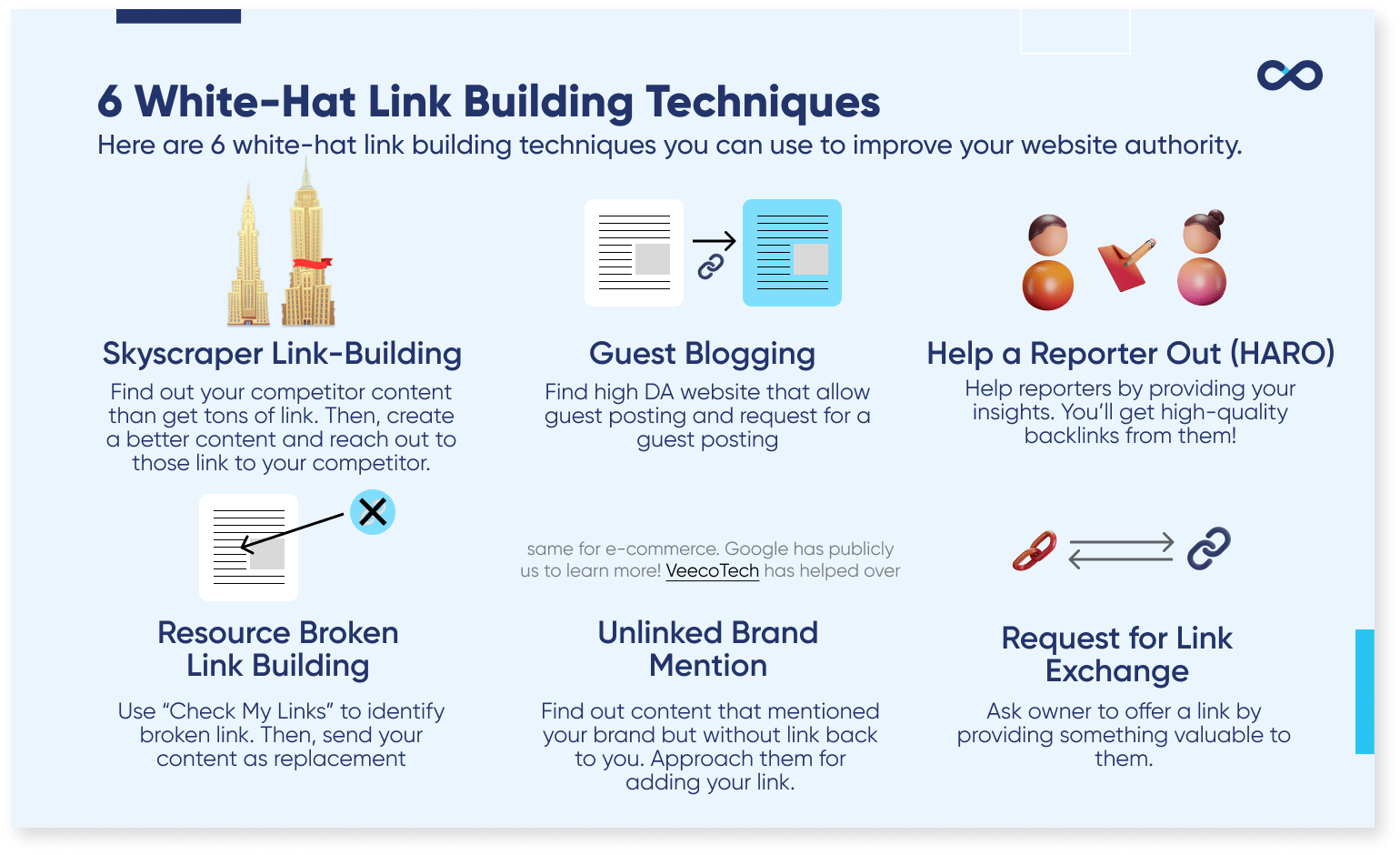
On the other hand, you can collaborate with local businesses such as orthodontists, periodontists, or medical spas, allowing dentists to exchange links on each other’s websites.
This mutual agreement helps establish connections between professionals while expanding each party’s online presence.
Leveraging Online Directories
In addition to building backlinks, listing dental practices in online directories significantly enhances visibility and improves local SEO efforts.
When potential patients look for specific services within their locality using online directories like Malaysia Business Directory or Yellow Pages, having accurate business information, there ensures they find reliable options easily.
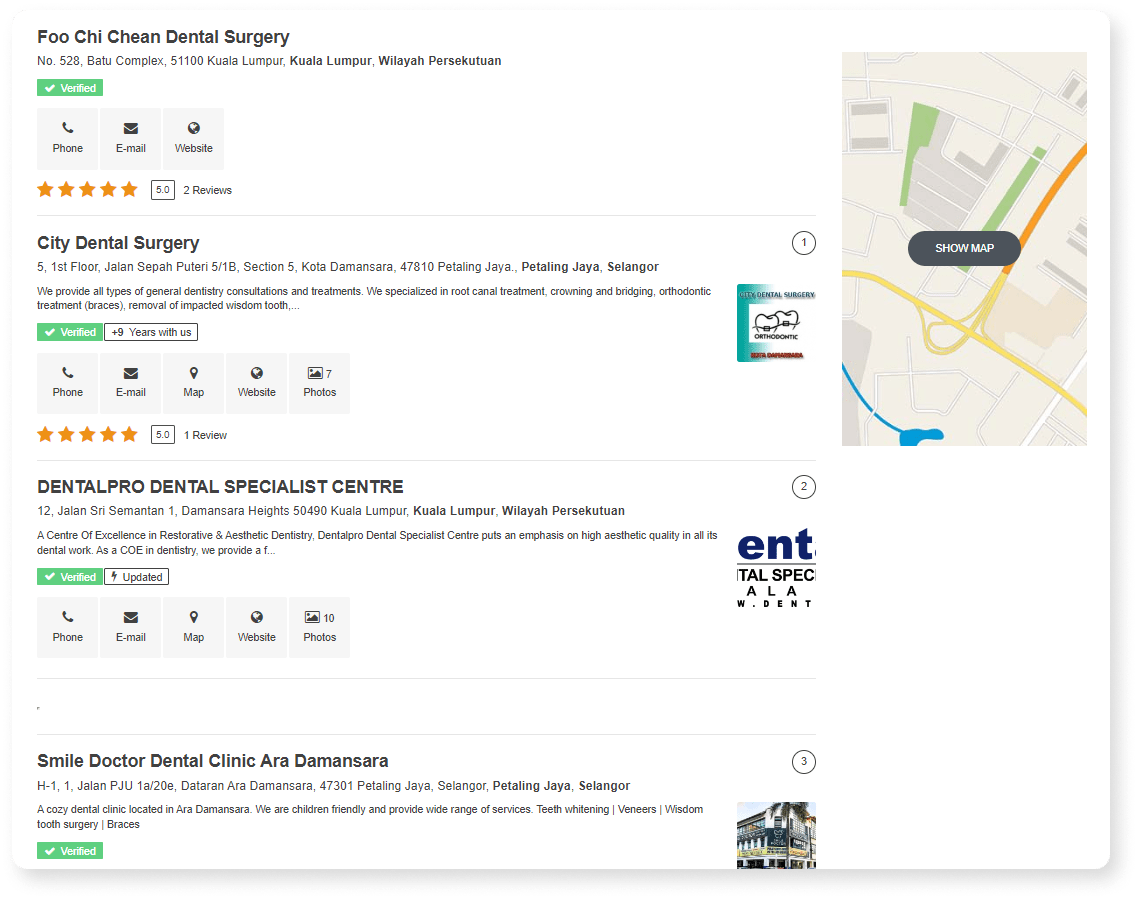
These positive reviews contribute positively towards attracting new leads by instilling confidence among prospective patients about choosing that particular dental practice over others.
Leveraging social media platforms effectively and optimising directory listings under relevant categories with appropriate headings ensures maximum exposure among potential patients seeking dental services locally.
Leveraging Google Business Profile for Dentists
To enhance their online presence, dentists can leverage the power of Google Business Profile.
A well-optimised Google My Business profile has a higher opportunity to rank on the Google Snack Pack (Or Local Map Pack).
For instance, if your GMB profile is ranked on the local pack position #1 for the keyword “braces in KL”, chances are your site has more organic traffic as the first position has a CTR of 17.8%.
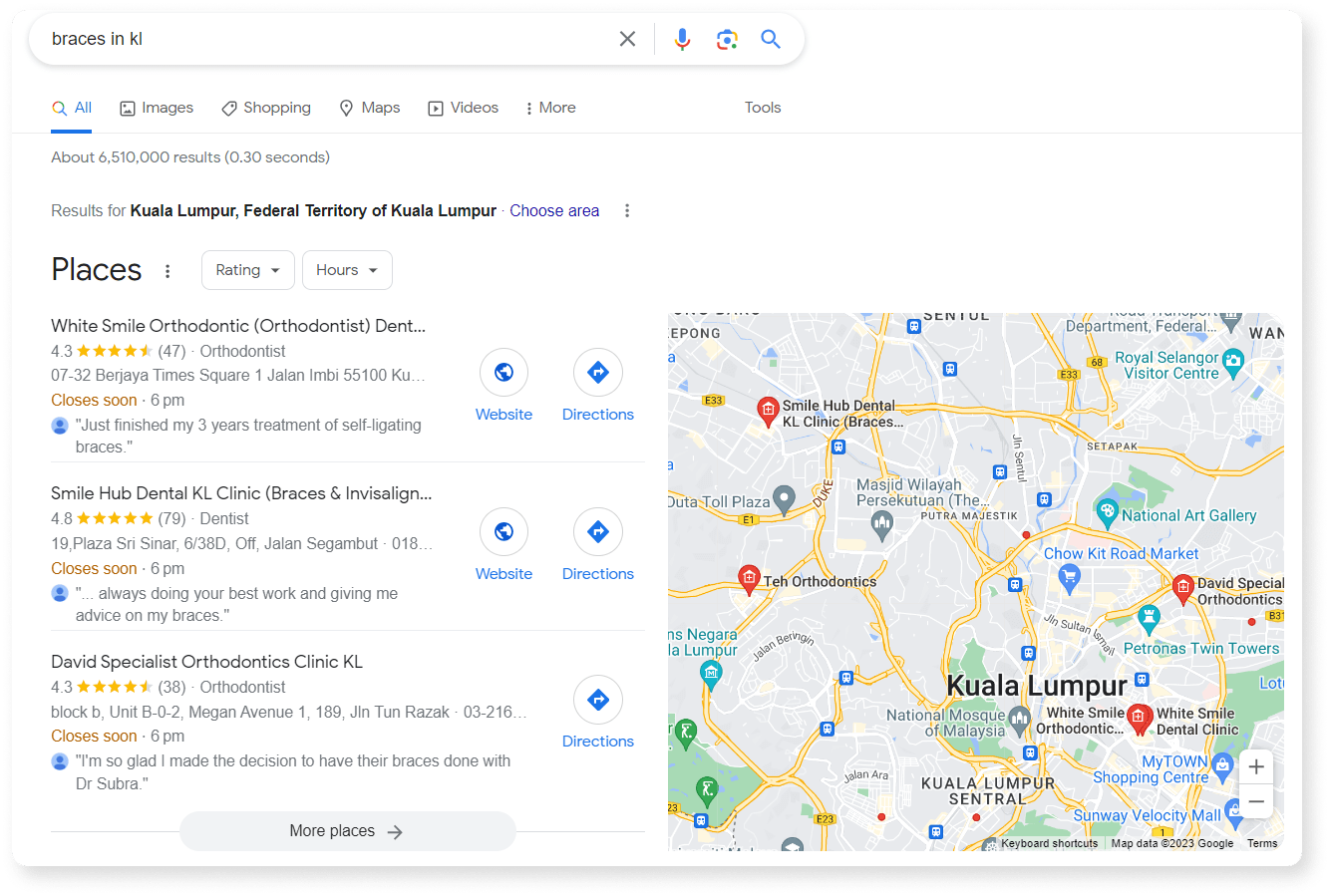
But how do you rank higher in Google Snack Pack?
According to the study by Whitespark, 32% of the factors come from Google My Business Profile signals.
It includes the proximity of your local business to the searcher’s location and the type of services you provided.
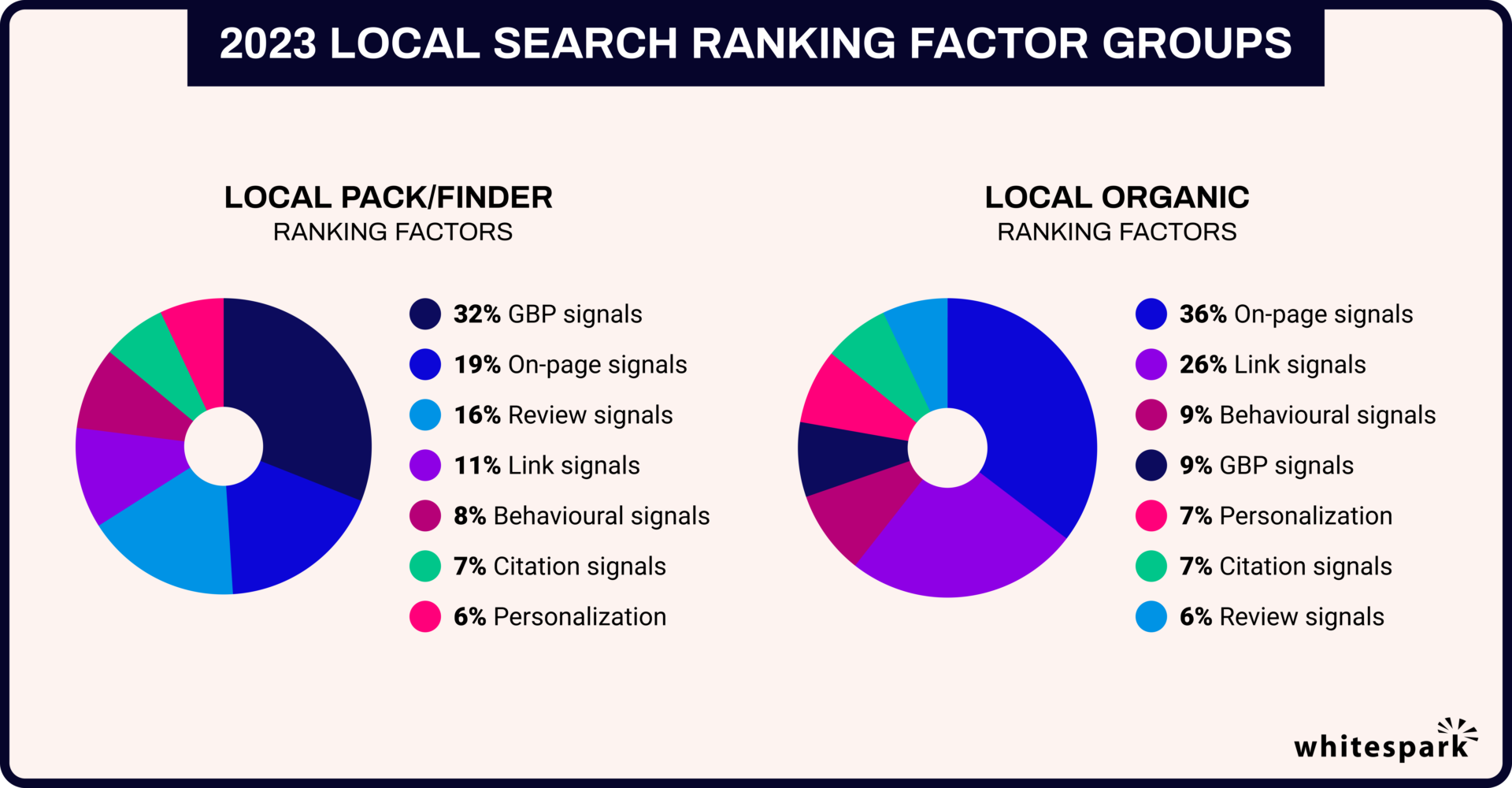
The second factor is on-page signals, which involve optimising the business page with accurate information, such as address, phone number, and up-to-date services offered.
The third factor is review signals, which include your Google review rating (more about this in a second!) and reviews on 3rd party platforms.
While updating your GMB Posts is not directly related to the ranking, it helps to maximise the potential of a business profile.
You can use it to post engaging content about special offers, dental tips, or community involvement to keep the profile fresh and provide valuable information to potential patients searching for a dentist online.
Enhancing Patient Acquisition By Improving Your Reviews
Increasing Google and Third-Party Reviews
Encouraging patients to leave reviews on platforms like Google and third-party websites can significantly boost dental SEO.
Here’s an example from one of our clients who got 150+ positive Google Reviews.
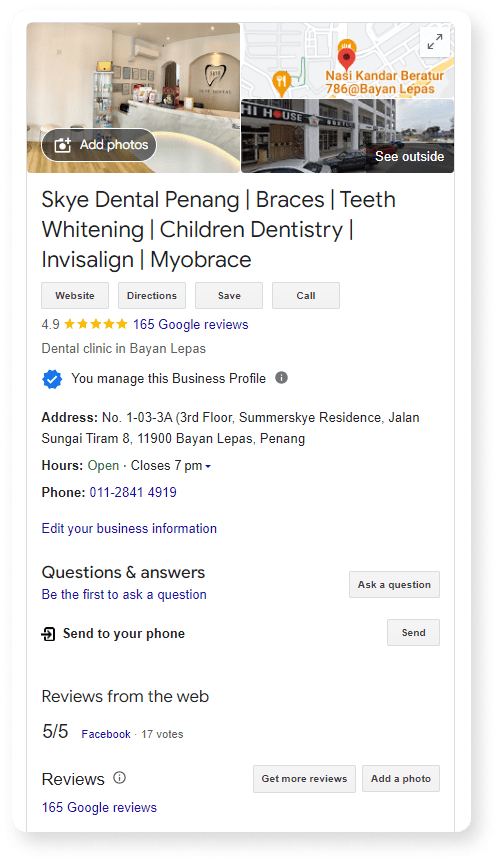
Due to the positive reviews, our client gets over 70 monthly calls from Google My Business alone.
There are various ways to obtain more reviews. Some approaches include:
- Sending a review request email after each appointment, which effectively prompts patients to share their experiences.
- Displaying printables in the dental office, such as posters encouraging patients to provide feedback, can serve as gentle reminders.
As part of the patient’s departure process, training your dental office receptionist to mention leaving a review during goodbyes can also help increase the number of reviews received.
Leveraging Incentive Programs for Reviews
Incorporating incentive programs similar to those implemented by our client can motivate dentists and nurses to find patient feedback actively.
Offering extra incentives when they successfully obtain a patient’s review creates additional motivation for staff members.
These efforts improve SEO results and foster a culture where everyone within the practice is aligned with enhancing patient acquisition through building trust via authentic feedback.
This approach ensures consistent engagement with current and potential patients while bolstering the marketing funnel.
Utilising Analytics to Measure Dental SEO Success
Dentists can benefit from Google Analytics to gain valuable insights into the effectiveness of their dental websites.
For instance, dentists can track how many people visit their website after searching for keywords related to dental services. This data helps them understand the impact of their SEO efforts on attracting potential patients.
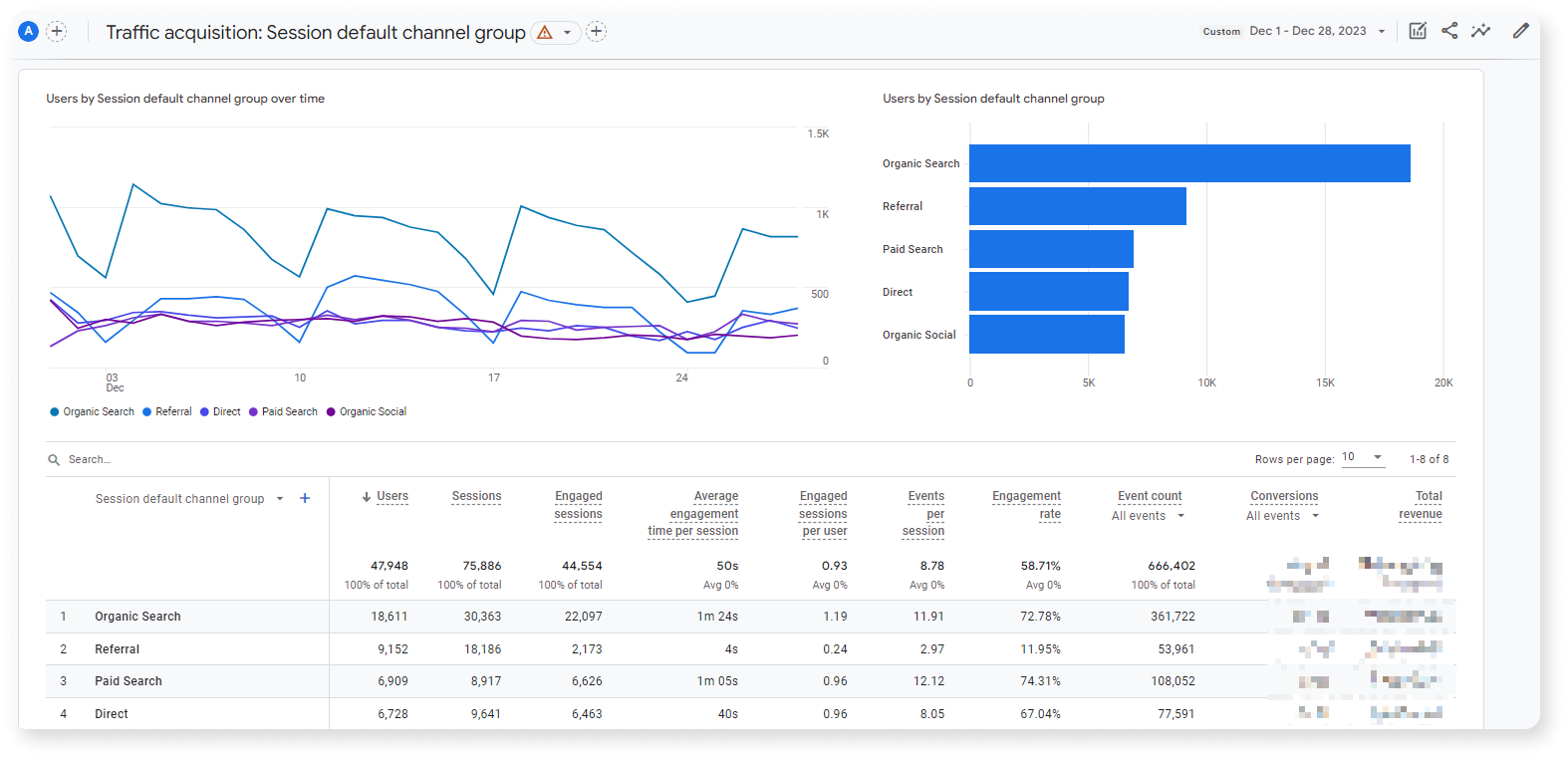
Analysing the data provided by Google Analytics allows dentists to identify areas that need improvement in their website’s performance.
For example, a high bounce rate for a particular web page may indicate that visitors need help finding what they are looking for or that the content needs optimisation.
Should I Partner with an SEO Agency?
Navigating the complexities of keyword research and blogging while managing a dental practice can be challenging. However, that’s where SEO agencies come into play.
When you partner with an SEO agency, you entrust professionals to handle the intricacies of promoting your dental services online.
While handling it independently might save costs, the required time and expertise often outweigh the benefits.
Investing in a seasoned professional to manage your online presence is a strategic decision.
VeecoTech is equipped to oversee your entire SEO strategy, offering comprehensive services:
- Crafting a robust content strategy
- Conducting in-depth keyword research
- Planning and managing an editorial calendar
- Creating and editing compelling content
- Streamlining publishing processes
- Implementing effective promotion and link-building strategies
- Monitoring and measuring performance metrics
Whether you operate a small dental clinic within a state or a nationally recognised network with multiple branches, SEO can significantly impact your online visibility.
Ready to engage a digital marketing agency specialising in driving organic traffic to your website? Let’s start a conversation! 😀
Discover the full scope of our SEO services here.
Conclusion and Next Steps in Dental SEO Strategy
By now, you understand the pivotal role of search engine optimisation in attracting new patients and growing your dental practice.
Remember, the key to success lies in implementing these strategies and consistently monitoring and adapting them to ensure continued growth.
Remember that patience is crucial as you embark on your dental SEO adventure.
Just like nurturing a garden, the fruits of your labour may not be immediately apparent, but with persistence and dedication, you’ll reap a bountiful harvest of new patients.
Stay proactive, stay informed, and, most importantly, stay authentic in your online presence. Your commitment to providing valuable content and a seamless online experience will undoubtedly set you apart in the competitive landscape of dental practices.
Frequently Asked Questions
What is Dental SEO, and why is it important for dental practices?
Dental SEO optimises a dental practice’s online presence to improve its visibility in search engine results. It helps attract potential patients, establish credibility, and build trust, leading to increased appointments and revenue.
How can dentists benefit from implementing SEO strategies?
By investing in effective SEO tactics, dentists can enhance their online visibility, reach a wider audience of potential patients, build trust with existing and prospective clients, and ultimately grow their practice by increasing appointment bookings.
What are some key local SEO strategies tailored for dental practices?
Local SEO strategiic for dental websites include optimising Google My Business profiles, obtaining positive patient reviews on relevant platforms, utilising location-based keywords in website content, and ensuring consistent NAP (Name, Address, Phone) information across all online listings.
How can dentists measure the success of their dental SEO efforts?
Dentists can utilise analytics tools such as Google Analytics to track website traffic sources, user behaviour patterns on the site (such as time spent on pages), keyword performance rankings in search results pages (SERPs), and conversion rates to assess the effectiveness of their dental SEO strategy.
What are some effective techniques for building trust through backlinks and online directories?
Building trust through backlinks involves acquiring high-quality links from reputable websites within the healthcare or dental industry. Dentists should also ensure consistent listings on authoritative online directories related to healthcare services.






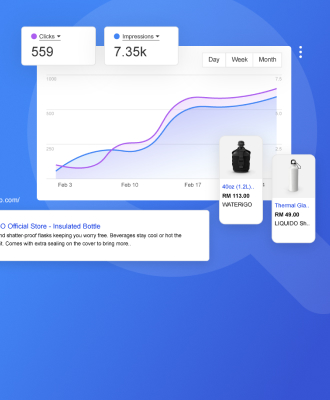
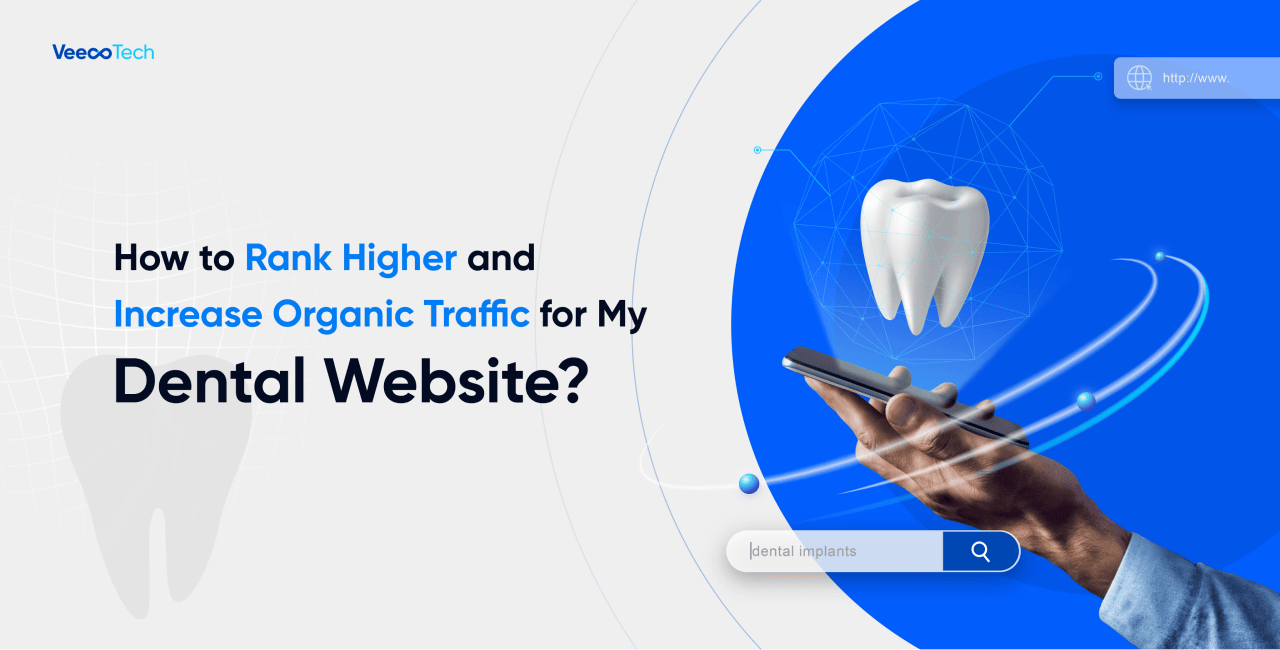






Leave A Comment